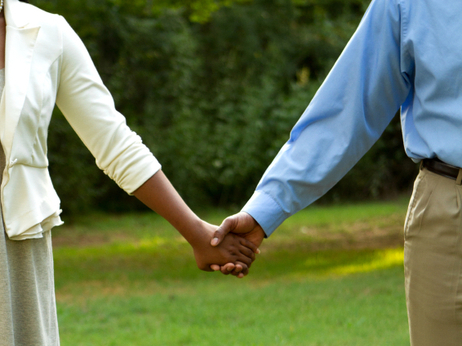I found this at NPR:
So Single Black Men Want Commitment. Really?
by GENE DEMBY
We recently found that single black men were much more likely to say they were looking for a long-term relationship (43 percent) compared to single black women (25 percent).
Those numbers come from our big poll of African-Americans‘ views of their lives and communities (the poll was conducted by NPR, the Robert Wood Johnson Foundation and the Harvard School of Public Health). Our findings about the dating lives of single folks — that is, respondents 18-49, widowed, divorced, or never married — have sparked the most conversation so far.
And the gender skew has elicited straight-out side-eyes.
A lot of people wondered just what was going on, because the prevailing story is that black women cannot find black men who are interested in a relationship. (And if we’re keeping it one hundred, these results sparked some arguments among the Code Switch team.)
So here are some additional ideas about what might explain this discrepancy. As our poll makes clear: it’s hardly that neat.
1. The Financial Stability Theory.
When we asked Robert Blendon, one of the poll’s co-directors, what might explain this gap, he pointed to research that has shown black folks care more about the economic cost-benefit analysis of partnering up.
“African-Americans were more concerned with financial security than whites or Hispanics when they considered marriage,” Blendon said.
So why might that matter? Blendon said that black women are outpacing black men in college attendance and completion, as well as as the attainment of postgraduate degrees. (Women in general are more likely to get degrees, but it’s even more pronounced among black folks: two-thirds of all bachelor’s degrees awarded to African-Americans in 2009-2010 went to women.) Assuming that our female respondents are looking for equally educated black men as partners, there may be real worry about the economic prospects of their pool of partners. (Only about four percent of respondents identified themselves as LGBT.)
But if we also think about the division of household labor, which in the United States means women bear a larger share of domestic responsibilities, then a long-term relationship might seem unappealing to many women. (A federal study from 2011 showed married women reporting to have much less leisure time on a daily basis than do men, doing a whole lot more housework, and doing the lion’s share of the child-rearing.)
It’s possible that our single women respondents are taking all of this into account and finding the prospect of a long-term relationship wanting. (Alas, we don’t have numbers for other racial groups, and no basis for comparison.)
2. The What-Do-You-Mean-By-Long-Term-Relationship Theory.
This is the theory we heard most often. Maybe people have very different definitions of “long-term relationship.” Put another way: men want relationships, not marriage.
That’s what Milton Appling, a single Brooklynite, told NPR’s Chris Johnson when asked for his thoughts on the findings. “If ‘long-term relationship’ means headed to marriage as a final step, as opposed to X years and we’ll see what happens, then that’s very different,” he said. “Men in general, when they hear that term, do not necessarily mean ‘marriage.’ Marriage is marriage.”
Danielle Belton, writing at Clutch, also wondered about the choice of words. “Commitment does not necessarily equal ‘marriage,’ which is what I know many of my friends, including myself, say they eventually want,” she wrote. “Sure, I have no doubt that there [is many a man] who thinks life would be easier if the rent could be split, if sex was easy and plentiful, if sandwiches were made and always abundant while still having that escape clause because nobody has any papers on each other.”
Read more HERE

